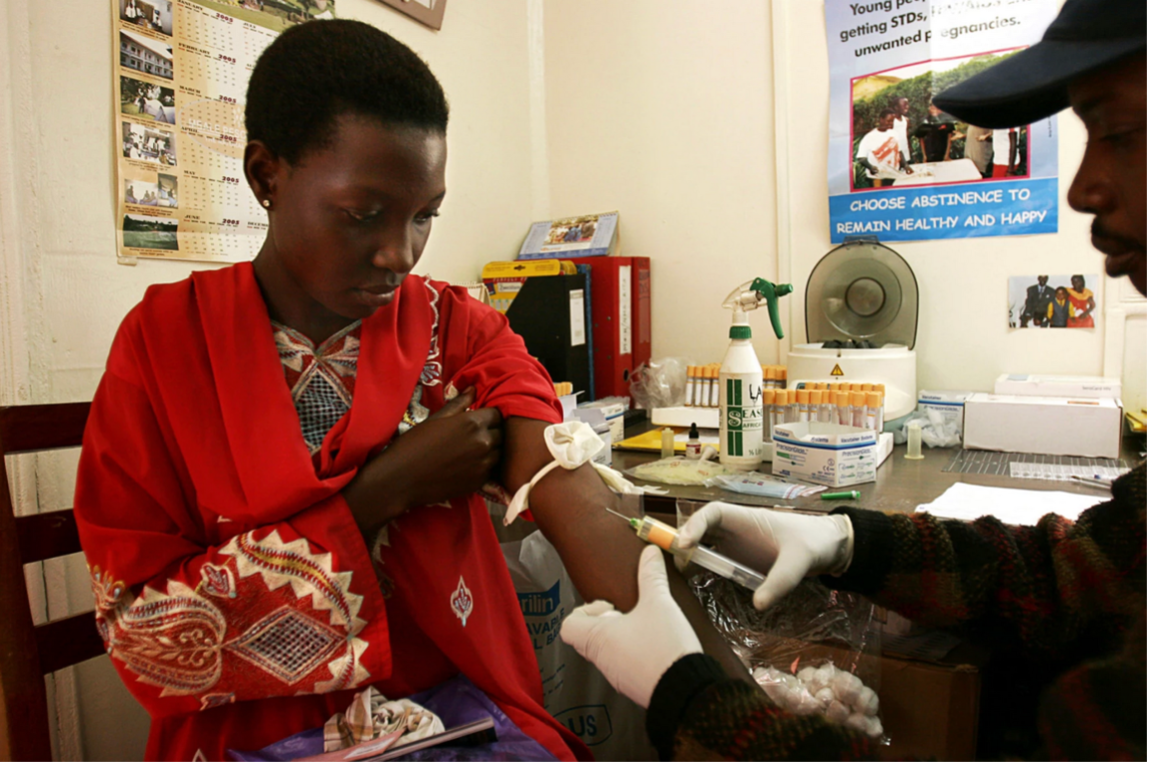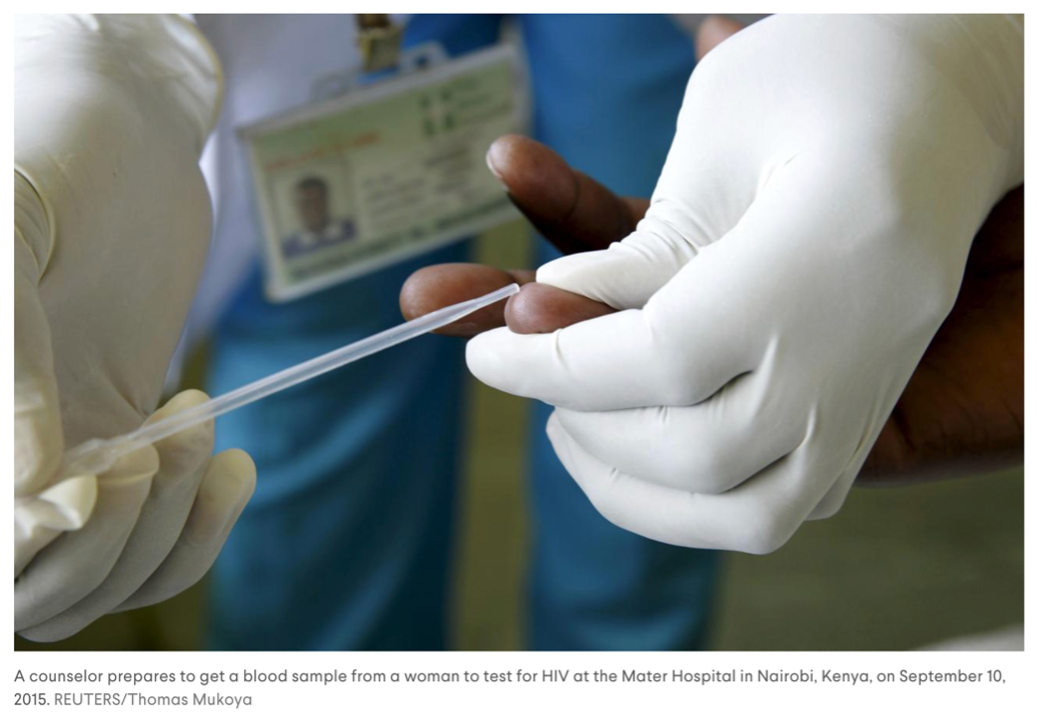What’s Next for PEPFAR? Insights from Shimon Prohow
by Bibiana Rais | 22 Feb 2024
What’s Next for PEPFAR? Insights from Shimon Prohow
Launched in 2003 under President George W. Bush, the U.S. President’s Emergency Plan for AIDS Relief (PEPFAR) has been recognized as one of the most effective and bipartisan accomplishments in U.S. foreign policy, saving over 25 million lives and significantly expanding access to HIV treatment across more than 50 countries. For two decades, it operated with broad political support, a clear interagency model, and steady funding. However, as 2025 approaches, that stable period has come to an end. The merger of USAID into the State Department, the reduction of CDC staff, and delays in reauthorizing PEPFAR’s long-term mandate have raised concerns about the program’s future direction. Key implementation mechanisms are changing, and many recipient countries face uncertainty about the continuation of service delivery, oversight, and funding priorities.
To better understand what lies ahead for PEPFAR—from ground-level service provision to policymaking in Washington—Bibiana Rais spoke with Shimon Prohow, who has spent over 13 years at USAID working directly on the PEPFAR program. As an experienced strategist with extensive knowledge of interagency dynamics and local implementation, Shimon provides a grounded perspective on what the upcoming transition means for the program and the millions who rely on it.
Bibiana Rais: Looking back on your 13 years at USAID, can you walk us through the key roles you held and how they shaped your perspective on multilateral collaboration, program implementation, and public health diplomacy at scale?
Shimon Prohow: I began at USAID as an MBA summer intern and advanced into a leadership role over 13 years, working at the intersection of HIV, tuberculosis, and malaria programming through the Global Fund. I served as a multilateral advisor, coordinating with the Global Fund and UNAIDS, and led U.S. engagement in countries across Africa, Central America, and Southeast Asia. My role required a systems-level understanding — from the President’s Budget to outcomes at the village clinic level. I was heavily involved in programming and supply chain planning; program integration; and sustainability efforts that helped redefine what global health delivery could be.
Bibiana Rais: As PEPFAR reaches a critical point in its development, how would you describe its current position, especially given the dismantling of USAID, reductions in CDC staff, and delays in program reauthorization?
Shimon Prohow: PEPFAR is definitely at a crossroads. It has been a remarkable public health and diplomatic achievement, with more than 15 million people currently on treatment thanks to its efforts. However, the core infrastructure—USAID missions, CDC technical teams, and experienced implementers—has faced serious disruptions. The dissolution of USAID and staffing cuts have introduced real uncertainty around implementation. PEPFAR now needs to adjust to a situation with fewer resources, smaller oversight capacity, and increased political scrutiny than it has encountered in years.
Bibiana Rais: With the institutional infrastructure that once supported PEPFAR considerably weakened, how do you expect service delivery to be affected, especially for core programs like testing, treatment, and viral suppression?
Shimon Prohow: We’re experiencing what I call a ‘Wild West’ period of implementation. With fewer in-country experts and less institutional knowledge, there will be increased reliance on contractors working with more autonomy, and probably less guidance. Programs will need to be quickly re-competed or re-scoped, and there’s a knowledge gap in the State Department’s contracting capacity that will slow down response times. Core services—testing, treatment, viral suppression—will be maintained out of necessity, but vital support programs could disappear.
Bibiana Rais: Given shifting foreign policy priorities and limited budgets, is it realistic to expect PEPFAR to maintain its presence in all current countries? What are the implications of downsizing in high-risk or diplomatically sensitive regions?
Shimon Prohow: That’s unlikely. We may see reductions in countries nearing epidemic control or those deprioritized due to foreign policy changes. While PEPFAR has traditionally focused on need rather than politics, the new environment might distort priorities. The program has operated in fragile states like South Sudan and Myanmar solely based on epidemiology. Whether that ethos will continue is uncertain. Recipient countries will need to show alignment and capacity—or face possible support variability.
Bibiana Rais: What impact do you anticipate for the ecosystem of implementers—U.S. and local organizations that have depended on PEPFAR funding for years—considering the shift toward centralized oversight and the probable dominance of U.S.-based primes?
Shimon Prohow: The implementer landscape is shifting dramatically. In Kenya, where I oversaw major programs, nearly all PEPFAR service delivery was locally implemented. Now, local partners might face a funding gap unless their governments or multilateral organizations intervene. U.S.-based contractors are expected to lead the next phase, especially those experienced in handling uncertainty. Unfortunately, the trend is toward centralization—more decisions are made in D.C. and fewer by field teams. That could marginalize local knowledge and partnerships.
Bibiana Rais: You’ve emphasized that commodity delivery—from port to clinic—is crucial. Why is this often-overlooked part so important for maintaining care, and what’s at risk if last-mile logistics issues aren’t solved?
Shimon Prohow: The supply chain is where theory meets reality. Buying antiretrovirals is just part of the process—getting them from a port like Mombasa to remote clinics is where programs succeed or fail. In Kenya, $67 million annually supports treatment for 1.3 million people—a huge return on investment. But even small disruptions in customs clearance or transport planning could put lives at risk. If we don’t protect last-mile logistics as budgets shrink, we risk harming health outcomes and undoing decades of progress.
Bibiana Rais: From your perspective, what immediate actions should the State Department take to restore operational stability and establish a foundation for a sustainable five-year plan under this new framework?
Shimon Prohow: First, clarity. The State Department must promptly issue contracts to regain operational momentum. Second, they need to develop a transparent, medium-term sustainability plan—one that considers fiscal realities without abandoning patients. This isn’t about keeping a program alive for the sake of optics; it’s about creating a responsible path forward for health systems that are already fragile.
Bibiana Rais: Beyond the programmatic and institutional changes, what broader societal or geopolitical risks do you associate with failing to protect the gains of PEPFAR—especially in fragile states or regions where HIV intersects with security, displacement, and orphanhood?
Shimon Prohow: The heart of this issue is human. Behind every data point are people whose lives depend on continuous care. PEPFAR’s legacy is monumental, yet it’s fragile. We need to safeguard the progress, honor the partnerships, and adapt with urgency. If we do, PEPFAR can remain the greatest U.S. foreign aid success story of our time.
About Shimon Prohow
Shimon Prohow is a global health strategist and former senior advisor at USAID, where he spent over a decade supporting PEPFAR, COVID-19 response, and cross-sector health systems strengthening and donor coordination, with a particular specialty in francophone Africa. He brings deep expertise in program implementation, donor coordination, and the intersection of global health and diplomacy, and previously served as USAID’s HIV point-of-contact for Kenya, West Africa Regional, Cameroon, Central & South America, Papua New Guinea, and Djibouti. Shimon holds an MBA from Georgetown University’s McDonough School of Business. He currently advises on the future of U.S. foreign assistance programs and sustainability transitions.
About Bibiana Rais
Bibiana Rais is a GovCon strategist with 20 years of experience supporting U.S. and European government programs across defense, diplomacy, security, logistics, and stability operations. She has worked on high-impact initiatives with a wide range of government agencies in the Middle East, Africa, and Eastern Europe. Her expertise includes strategic engagements and market positioning for U.S. and international companies operating in contingency and post-conflict environments. Based in Washington, D.C., Bibiana serves as an industry consultant with PTS, providing market intelligence and strategic insights across the government contracting sector.
PEPFAR-related Images

Credit: Per-Anders Pettersson / Getty Images


Children stand in lines during a PEPFAR site visit in South Africa. Photo courtesy of Jirair Ratevosian

